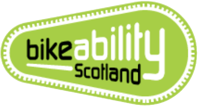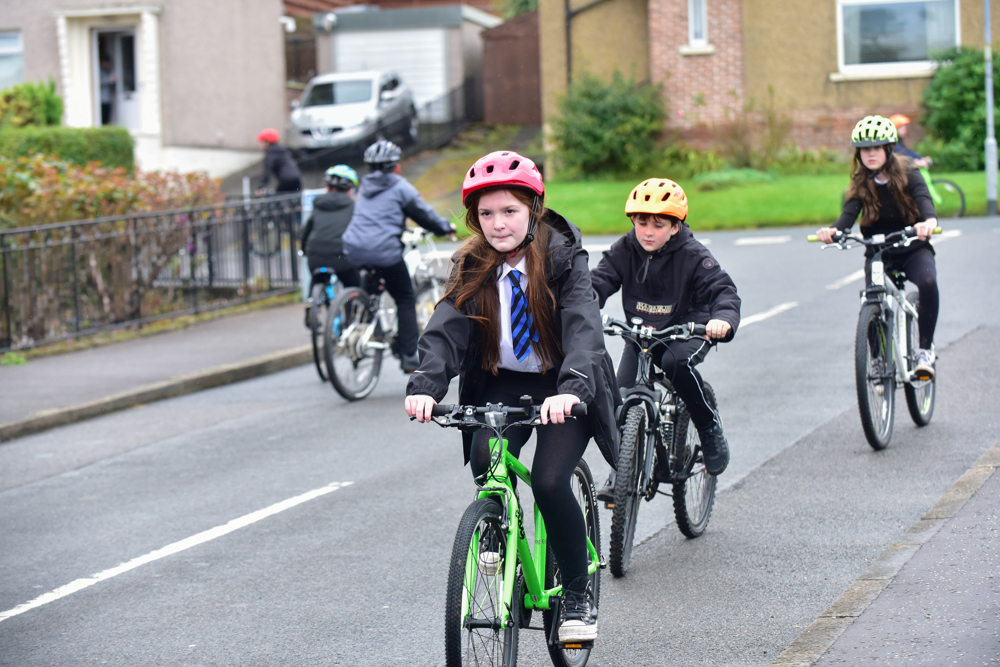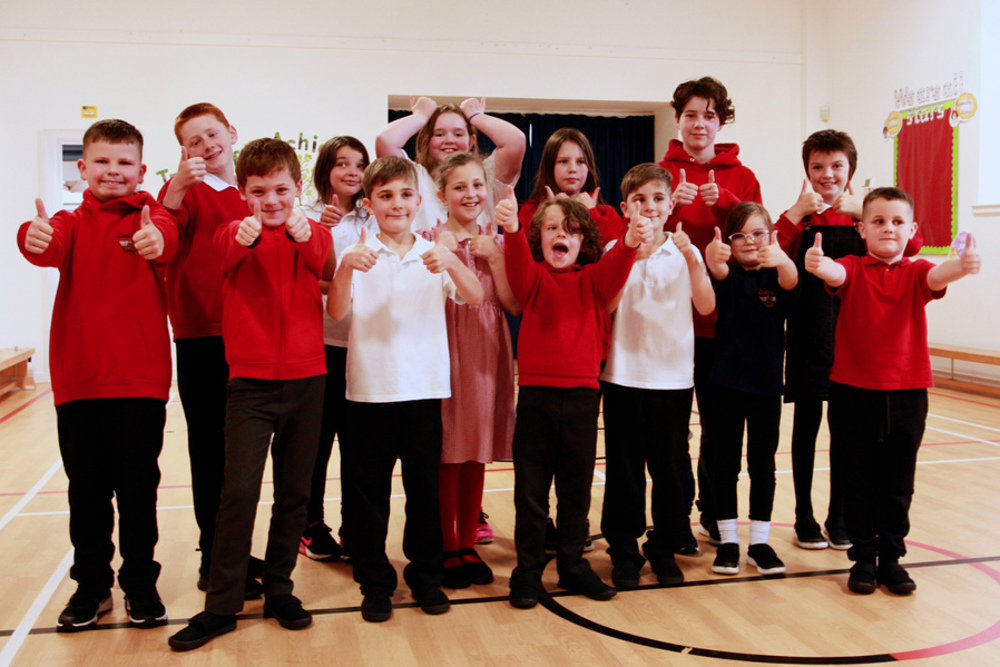Annual report & accounts 2024-25

Education and training
Bikeability Scotland
Bikeability Scotland is the national cycle training programme for school children, providing them with the skills and confidence they need to cycle safely on the roads.
Bikeability Scotland is delivered in partnership with Scottish local authorities, through funding from Transport Scotland.
For many local authorities, Bikeability Scotland is an integral part of their statutory obligation to provide road safety education.
More than 500,000 young people have completed Bikeability Scotland training since it started in 2011
In the last academic year (August 2024 – June 2025), two thirds of primary schools delivered Bikeability Scotland training, benefitting more than 53,000 young people. From cities to rural areas, the central belt to the Islands, a record fourteen local authorities delivered Level 2 on-road cycle training in every primary school in their area, including: Aberdeen City, Clackmannanshire, Dundee, East Dunbartonshire, East Lothian, Western Isles, Orkney, Scottish Borders, Shetland and Stirling. Dumfries & Galloway, Midlothian, Moray and Perth & Kinross all delivered on-road training in every primary school for the first time. Level 2 builds on the bike control skills developed as part of Level 1 and introduces four core functions that enable children to make safer decisions when riding in traffic.
Local authorities and Cycling Scotland worked together to increase delivery of Level 2 on-road cycle training to a record 62% of primary schools, with half of local authorities now delivering on-road training in more than 90% of primary schools.
More than 500,000 young people have completed Bikeability Scotland cycle training since it started in 2011, with the programme helping children across the country to develop essential observation, signaling and riding skills to enable them to cycle with confidence now and into the future.


Evaluating the impact of training
To understand the impact of Bikeability Scotland training on young people, we concluded our most comprehensive evaluation yet. More than 4,000 pupils across 14 local authorities participated in this exercise over three academic years (2021-22, 2022-23, 2023-24).
Key findings show that:
- Bikeability on-road training increases frequency of cycling, particularly among secondary school pupils.
- Pupils that undertake Bikeability Scotland score higher in related knowledge and hazard awareness tests than those who did not. This increase is sustained into secondary school.
- The impact of Bikeability was even greater among schools with a higher-than average proportion of children eligible for free school meals – including cycling frequency and bicycle ownership.
The key findings have been presented to Transport Scotland and other key stakeholders, and were included as part of a wider presentation on evidence for the impact of cycle training, given at the online European Traffic Education Seminar on 17th September 2025. The evaluation will help to guide the future development, delivery and promotion of the programme.
This year’s results continue the highest delivery levels since Bikeability Scotland’s launch in 2010, with the programme helping record numbers of children across the country to develop essential observation, signalling and riding skills to enable them to cycle with confidence now and into the future.
As ongoing support, Cycling Scotland provides grant funding to local authorities committed to increasing delivery of Level 2 training. This funding can help tackle barriers to children participating, including providing bikes, and in 2025, additional provision for learn to ride activity.
Bikeability Scotland resources are regularly updated to reflect changes to the UK National Standard for Cycle Training and The Highway Code, this year that has included the Level 2 Rider’s guide, with new content on vehicle blind spots and the hierarchy of road users. In addition to redesigning the website pages to better address the needs of parents, teachers, instructors and local authorities, we also continue to engage with decision makers and relevant partners in education, including the Association of Directors of Education in Scotland, the Learning for Sustainability Partners Network, and elected council officials.
Case study
Bikeability Scotland School of the Year - Leadhills Primary School

Each year, the Bikeability Scotland awards recognise those helping children across the country to develop essential life skills through on-road national standard cycle training.
In 2023-24, Leadhills Primary School in South Lanarkshire, was awarded ‘School of the Year’ celebrating the school’s ongoing commitment and dedication to a fully inclusive training offer for all pupils.
With very few children having access to their own bike, the school secured external funding to purchase bikes in support of delivering Level 1 and 2 training, and further supplemented their fleet with a community drive for bike donations. The school called on local support to run maintenance checks on the bikes, and secured a trike for the duration of the course so that all pupils could take part.
It’s really fun and you get to learn how to be safe on the road… it feels like I can be safer on the roads and I can be confident of looking about and being aware of my space
In awarding the prize, judges highlighted the involvement of the whole school community and the investment of staff time in undertaking and then delivering training. Additionally, the school was recognised for its commitment to sustainability, by creating a community bike bank, helping ensure the same opportunity to learn to cycle is available to future pupils.
Headteacher Anne French said: “It's a great achievement to win. That's not what we do it for. It's for the children, to provide them with the same opportunities as everybody else and make sure that they have a whole experience.”